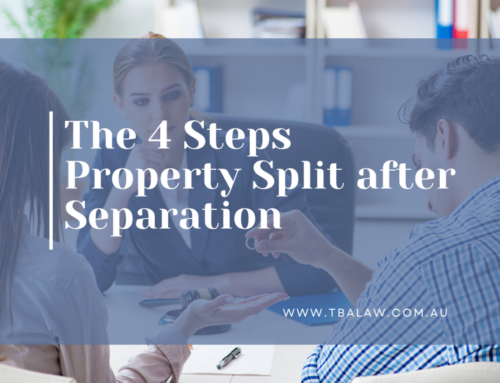Spousal Maintenance
by Lajita Allan-Agnew
The Americans call it alimony and in Australia we call it Spousal Maintenance (SM).
Spousal maintenance is financial support paid by a party to a marriage or to a party in a de facto relationship in circumstances where they are unable to adequately support themselves.

Why do I have to pay my ex-partner/spouse maintenance?
In some relationships, one of the parties will sacrifice career progression and income earning capacity to stay at home and raise the children, whilst the other partner will either progress their career and income earning capacity or build a successful business over the course of the relationship.
Following on, if and when the relationship then ends one party finds themselves as still the primary caregiver for the children and unable to realise his or her full income earning capacity. If the relationship was a long one then one party finds themselves significantly disadvantaged with respect to income earning capacity.
I pay child support so why do I have to pay SM?
Spousal maintenance is not to be confused with financial assistance payment to child support. As the name suggests, child support payments are for the financial support of the child whereas spousal maintenance payments are for the financial support of the former spouse/partner. Child support payments take priority over spousal maintenance.
Should I make an application for SM?
To best make this decision you must first be in a position to disclose and explain your current financial position and likely financial position after a property settlement. This base line information will assist you in deciding whether you have a need to bring an application (looking at your income and expenses) or capacity to pay the other party (where your income earning capacity exceeds your needs).
When can I apply for SM?
You can apply for spousal maintenance the day after the ‘date of separation’ from your spouse/partner. If you are married then you have 12 months after the date of your divorce order to bring a spousal maintenance application. For de facto relationships, a spousal maintenance application needs to be brought within 2 years from the date of separation
If you wait until after the above specified time frames then you will have to make an application to the court to prove exceptional circumstances such as hardship to be permitted to bring an application for spousal maintenance.
When does the Court award a SM claim?
The procedure the Family Court must follow in a spousal maintenance claim is to examine a “threshold test” under section 72 of the Family Law Act and can be divided as follows:
- The applicant is unable to support himself or herself adequately; and
- The respondent has the ability to pay the SM for the applicant.
The applicant has to establish his or her inability to maintain himself or herself adequately arises from one of the following:
- By reason of having the care and control of a child of the marriage who has not attained the age of 18;
- By reason of age, physical or mental incapacity for appropriate gainful employment; or
- For any other adequate reason having regard to section 75(2) factors
The need for spousal maintenance can be established by providing to the court, the average weekly income and expenses of the applicant. The person against whom a claim is made will then file documents to show that he or she does not have the ability to pay the SM claimed.
When exercising its powers, the court is required to disregard the applicant’s entitlement to any income tested pension, allowance or benefit. Therefore, when the court is determining whether the applicant can support himself or herself adequately, it will not take into account the Centrelink benefits received by the applicant.
When does a SM order cease?
An order for SM will cease upon the death of the dependent party in both de facto and married cases or on the date specified in the orders. It can also cease in the case of the dependent party marrying another person.
SM applications can be complex. If you would like some advice specific to your circumstances, or would like furtherLEGAL information, please contact TBA Law on 1300 043 103 to make an appointment in in any one of our offices located in Melbourne, Nagambie, Romsey, Wallan and now in Seymour.
For more information, click here.






Leave A Comment